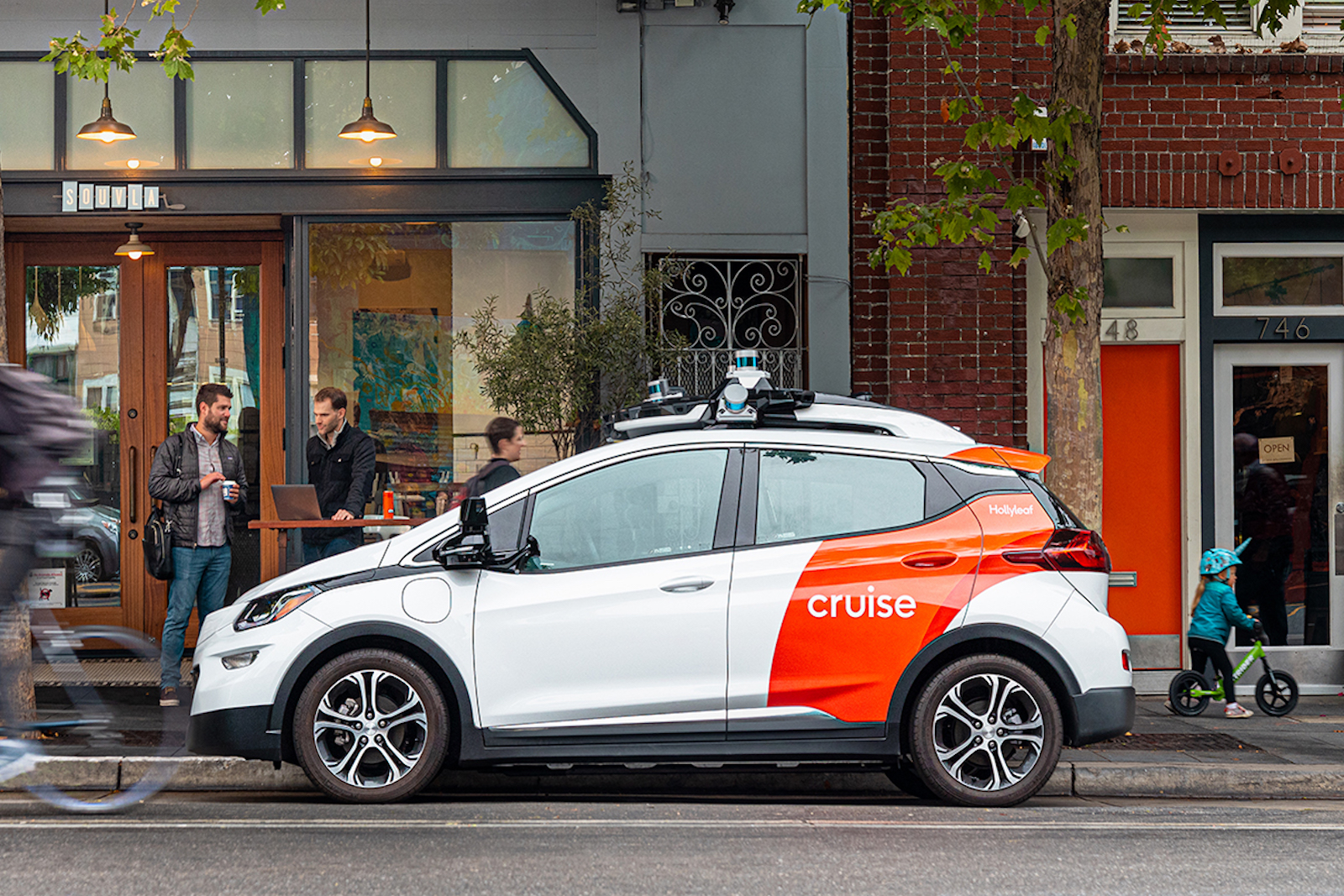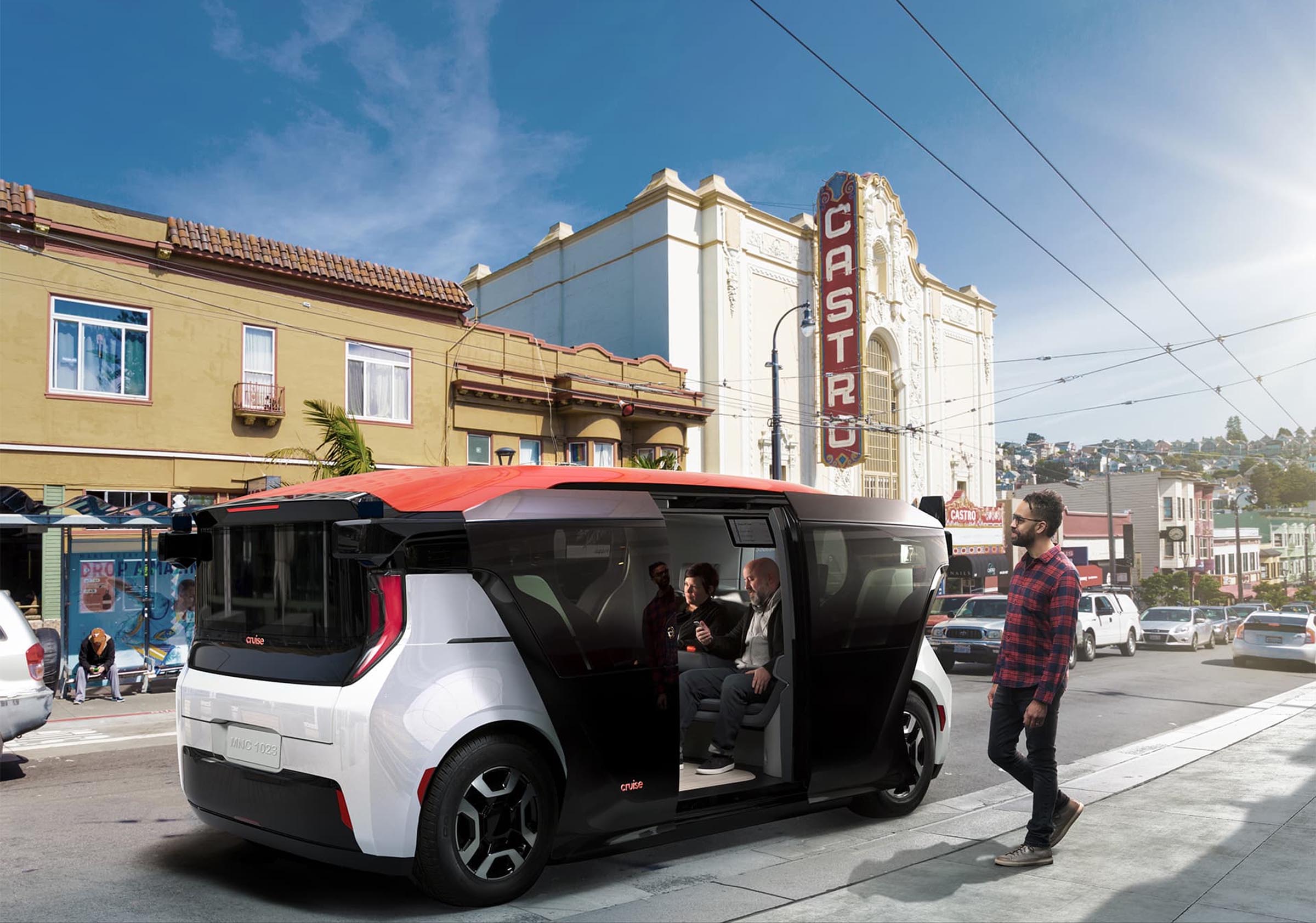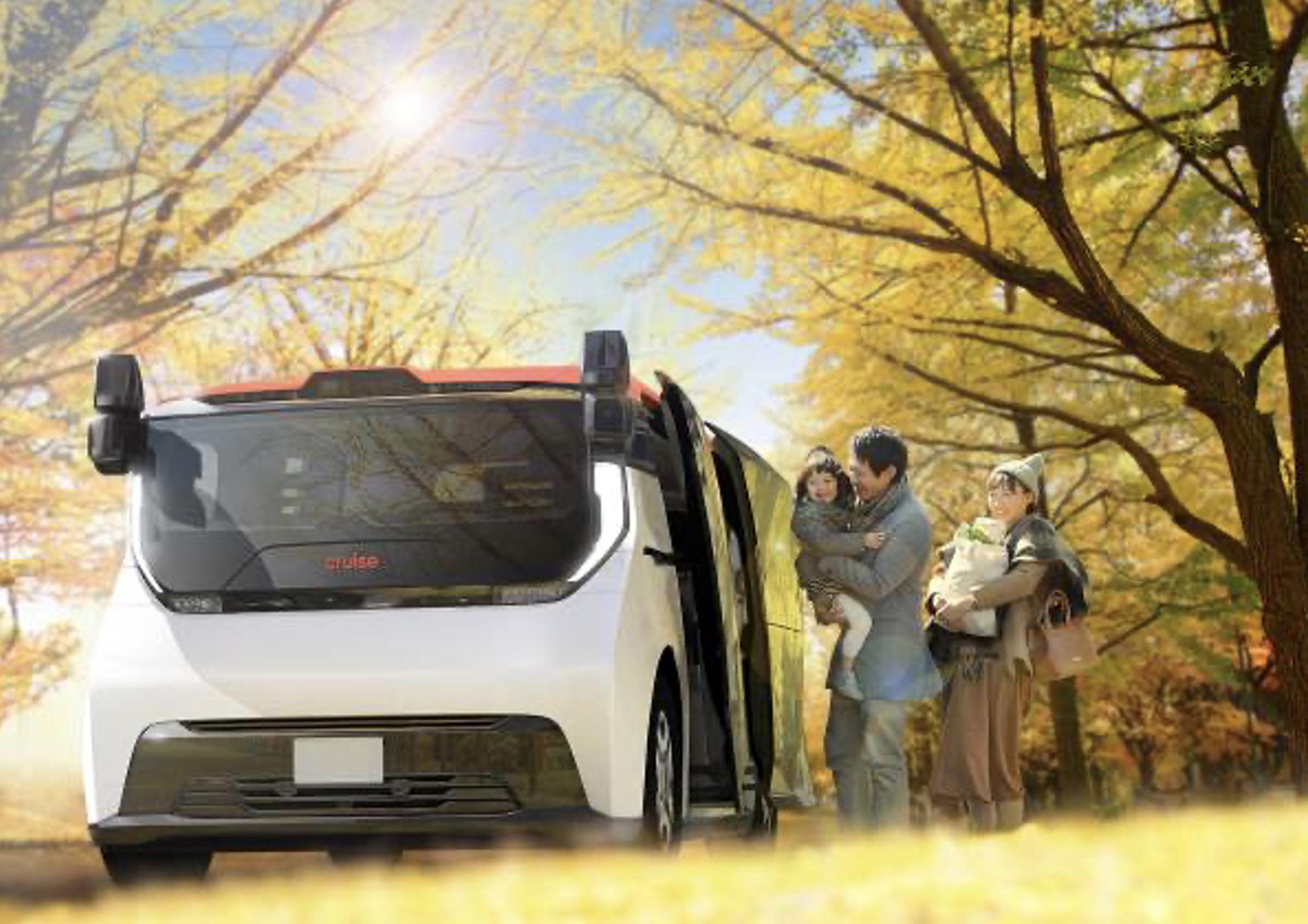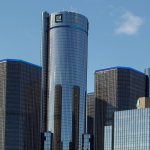Cruise will slash the number of cities where it’s testing its autonomous vehicle technology in the wake of a serious crash last month. And it is delaying the launch of the driverless robocab it had hoped to put on the road next year, the General Motors subsidiary announced.
In the wake of a near-fatal pedestrian crash last month, Cruise plans to sharply reduce the number of cities where it is testing its robocab technology, General Motor’s autonomous vehicle subsidiary said in a letter to employees.
Cruise’s driverless vehicles have been idled since shortly after the Oct. 2 crash in San Francisco seriously injured a pedestrian. The GM subsidiary did not say when it would resume operations.
Additionally, Cruise said it would not move ahead with plans to launch production of the Origin, a vehicle specifically designed for use as a a robocab, next year.
Origin on hold
“We’ve made the decision to focus on the Bolt-based Cruise AVs in the near term, with a longer-term strategy around the Origin,” a Cruise spokesperson told Automotive News, adding no new target date for rolling out the toaster-shaped robocab has been set.
Cruise was considered one of the leaders in the development of autonomous vehicles, and was testing its technology in a number of cities around the U.S. All that changed early last month, however. A pedestrian crossing the street in downtown San Francisco was struck by a hit-and-run driver and tossed in front of one of Cruise’s robocabs.

Officials say the company is focusing on the Cruise Bolt EVs right now in just one city as it looks to improve the technology.
Initially, a spokesperson claimed that the driverless vehicle immediately stopped, backing that up with a video taken by the Cruise vehicle. But, weeks later, an unedited version of the video revealed that after initially halting, the robocab started up again, dragging the seriously injured pedestrian with it as it maneuvered to the curb.
Timing uncertain
The revelation led California regulators to revoke Cruise’s recently won permit to operate its robocab fleet as a fully commercial venture. The company subsequently announced it was temporarily halting all operations on public roads. Cruise was testing its vehicles in about 10 cities around the U.S. according to Sam Abuelsamid, senior auto analyst with Guidehouse Insights.
Cruise did not indicate when or where it eventually plans to resume testing its driverless vehicles on public roads, but indicated that it will start up in just a single city.
“I think it’s going to be months before we see Cruise vehicles operating on public roads again, and it could be years before they’re operating in all those cities” where they were being used before the crash, said Abuelsamid.

A Cruise Chevy Bolt was involved in a crash in San Francisco this month, striking a pedestrian who’d been tossed into the road by a hit-and-run driver.
According to its original timetable, Cruise was set to begin migrating away from its modified Chevrolet Bolt EVs in 2024, switching to the specially designed Origin. The toaster-shaped vehicles has no traditional driver controls, such as pedals and a steering wheel.
Management shake-up
There has been some speculation that once Cruise resumes field testing its vehicles, it might put a “backup operator” in its robocabs, trained to take control in the event of an emergency. That approach has been used by competitors — though that doesn’t ensure accident-free operation. An Uber robocab struck and killed a pedestrian near Phoenix in 2018. The backup operator was charged in the case two years later.
The setback for Cruise has had a series of cascading repurcussions. A week ago, Cruise co-founder and CEO Kyle Vogt resigned, along with co-founder Daniel Kan. Vogt sent out his own e-mail to company employees ahead of his departure saying he took “responsibility for the situation Cruise is in today.”
No one has been named to replace Vogt but Cruise will go forward with Mo Elshenawy, its executive vice president of engineering, and Craig Glidden, GM’s executive vice president of legal and policy, serving as co-presidents.

A Cruise Chevy Bolt was involved in a crash in San Francisco in October, striking a pedestrian who’d been tossed into the road by a hit-and-run driver.
Japan launch in question
There are several other challenges facing Cruise. It must still win approval from federal safety regulators to deploy the Origin on public roads once it gets back on the production schedule. If and when that happens, state authorities would also have to approve the robocab’s operation.
Then there’s the launch of service in Tokyo which had been scheduled to begin in 2026. Cruise has not indicated whether it intends to go ahead with that move — which was to have used the Origin robocab.
Cruise was founded by Vogt and Kan in 2013 and sold to GM three years later for an undisclosed sum. Honda has since become one of the major investors, though the Detroit automaker retains control of the robocab company.




0 Comments